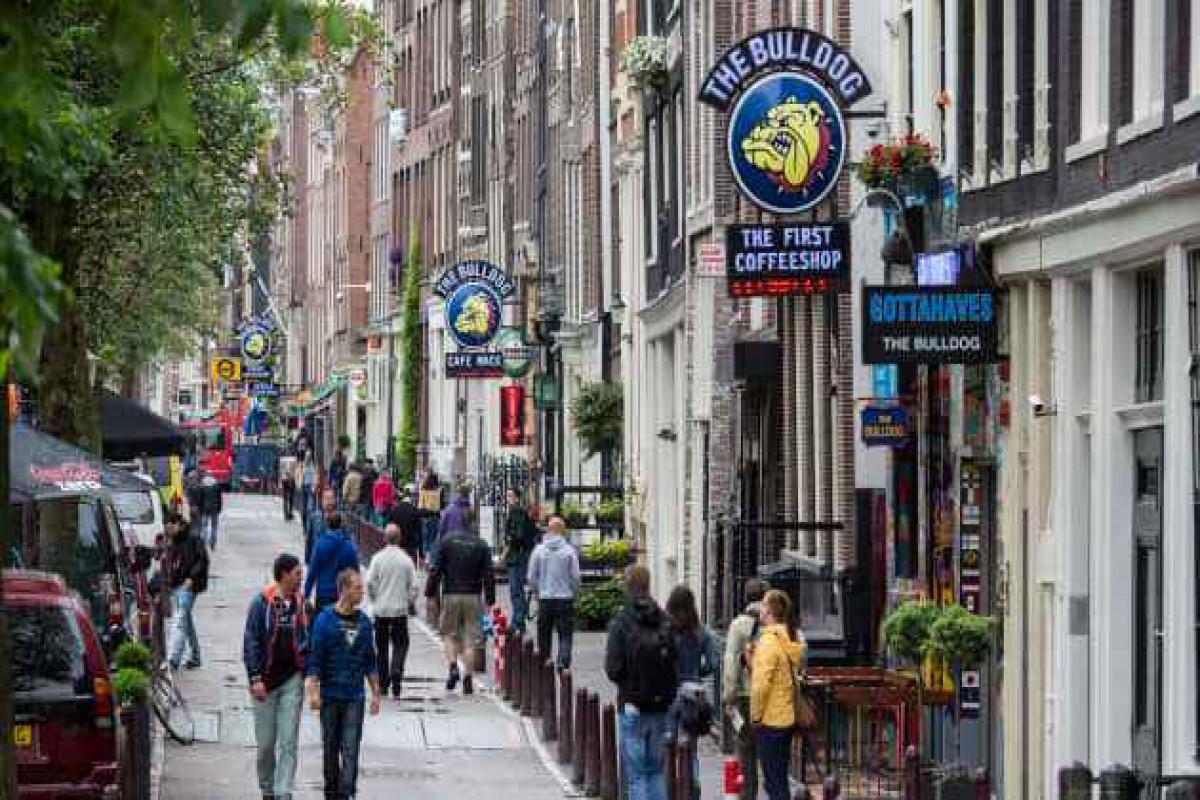Amsterdam has long been a draw for millions of tourists from Europe and beyond, with many attracted to the city for its canals, architecture and museums and, of course, its plentiful cannabis-laden coffeeshops and unabashed sex industry, APA reports citing CNBC.
But Europe’s so-called “city of sin” has not been the same since the Covid-19 pandemic struck, with tourism numbers sharply lower than previous years when the Netherlands’ capital could expect millions of visitors per year.
While many locals are loving the fact that they can wander and cycle through their city without dodging hoards of tourists, Amsterdam businesses that rely on visitors — such as coffeeshops, where cannabis can be openly bought and sold — are feeling the pinch, and there are fears that local authorities could soon clamp down further on their foreign customers.
“It’s been a quiet year, definitely,” Ben, who works at Barney’s Coffeeshop, told CNBC on Wednesday. “Obviously [it’s better] compared to last summer with the corona[virus], but this year it started getting busy but it’s still nothing compared to the years before. Only really French tourists have been coming over, French and Germans, not many English, not many Italians anymore.”
“I’m thinking now that the school holidays have finished I don’t think it’s going to pick up too much,” he added.
The Dutch tourism industry is still recovering and has a way to go before it sees pre-Covid levels of activity.
In the second quarter of 2021, turnover in accommodation and food services was 52.6% up on the same quarter of 2020 (a period covering the first lockdown). However, it was over 35% smaller relative to the second quarter of 2019, according to data in August from Statistics Netherlands, which added that “pre-Covid levels are still a long way off.”
Mike, a customer and retail manager for Green House which has several coffeeshops in Amsterdam, said that since the country had reopened and restrictions were removed, business had ticked upward but was still off its peak.
“The coffeeshops in the center are busy again ... but it is still quieter compared to normal years, but it has been picking up in the last month,” he told CNBC Wednesday, noting that the coffeeshops had adapted to new rules, such as social distancing between tables and making use of outdoor terraces.
Mike noted the coffeeshops had “suffered a lot” during Covid-19 lockdowns over the past 18 months. The Dutch authorities initially announced that coffeeshops would have to close with short notice when the country’s first lockdown began last spring.
The government quickly reversed course, however, after lines formed outside coffeeshops. Customers wanted to stash supplies ahead of the closures, and the authorities feared that the sale of cannabis could quickly take to the streets and allow the illegal and unregulated drugs trade to flourish.
In the Netherlands, selling drugs is illegal but the Dutch government tolerates the sale of soft drugs in coffeeshops which are strictly regulated.
Still, despite being allowed to remain open, opening times were reduced and travel bans meant that a large proportion of their customers, tourists, were unable to visit until this summer when the Netherlands opened up travel to some nations.
However, there are still restrictions on visitors from some countries with higher Covid rates (like many, the Netherlands designated other countries with a traffic light system of red, amber and green depending on case rates) and PCR testing and quarantine rules in place for some, deterring many tourists further.






